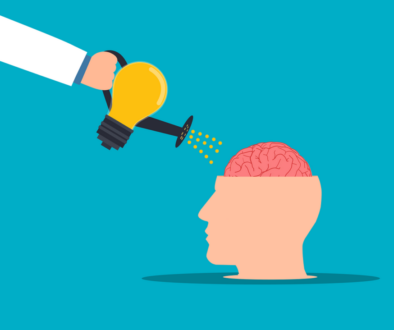Fundamentals: Embracing Our Limits for Greater Growth
“I fixed limits for it and set its doors and bars in place.” —Job 38:6 (NIV)
In the journey of personal development, it’s easy to feel invincible when we discover transformative ideas. Recognizing our potential can indeed be empowering. However, while it’s crucial to challenge limiting beliefs, we must also acknowledge and respect the real limitations of our human bodies. Understanding these limits doesn’t hinder our growth; instead, it enhances our ability to succeed sustainably.
We all have physical and mental boundaries—limits in willpower, energy, and capacity. Pushing these boundaries incrementally, much like gradually increasing weights at the gym, allows for steady and safe progress. Neglecting fundamental aspects of health can make it challenging to apply self-improvement strategies effectively. Even our faith and determination can falter if we ignore our basic needs.
Let’s explore three fundamental pillars that can transform your well-being and support your personal growth: Sleep, Nutrition, and Exercise.
-
Sleep: The Foundation of Well-Being
“In peace I will lie down and sleep, for you alone, Lord, make me dwell in safety.” —Psalm 4:8 (NIV)
Chances are, you’re not getting enough sleep. According to the Philips Global Sleep Survey (2019), 62% of adults worldwide feel they don’t sleep as well as they’d like. Our modern lifestyles—filled with constant connectivity, work demands, and endless entertainment—have disrupted natural sleep patterns, leading to a trend of sleeping less over the past century.
Why Sleep Matters:
Lack of sleep affects almost every system in your body:
- Mental Clarity and Focus: Sleep deprivation impairs cognitive functions like attention, decision-making, and problem-solving.
- Emotional Well-being: Insufficient sleep can increase stress levels, irritability, and susceptibility to anxiety and depression.
- Physical Health: Chronic sleep loss is linked to weight gain, weakened immunity, and increased risk of chronic diseases like hypertension and diabetes.
- Productivity and Creativity: Sleep enhances memory consolidation and creativity, vital for personal and professional growth.
Tips for Better Sleep:
- Establish a Consistent Sleep Schedule:
- Aim to go to bed and wake up at the same times each day, even on weekends. Consistency reinforces your body’s sleep-wake cycle.
- Create a Restful Environment:
- Keep your bedroom cool, dark, and quiet. Consider using blackout curtains, earplugs, or a white noise machine.
- Limit Exposure to Screens Before Bed:
- Avoid screens at least an hour before bedtime. The blue light emitted by phones, tablets, and computers can interfere with melatonin production.
- Be Mindful of Your Diet:
- Avoid heavy meals, caffeine, and alcohol close to bedtime. While alcohol might make you sleepy initially, it can disrupt your sleep cycle.
- Incorporate Relaxation Techniques:
- Engage in calming activities before bed, such as reading, gentle stretching, or meditation.
Understanding and Respecting Personal Limits:
It’s essential to recognize that everyone has unique sleep needs. While some thrive on seven hours, others may need nine. Listen to your body and prioritize quality sleep as a non-negotiable part of your routine.
-
Nutrition: Fueling Your Body and Mind
“So whether you eat or drink or whatever you do, do it all for the glory of God.” —1 Corinthians 10:31 (NIV)
You are what you eat—literally. The foods you consume become the building blocks of your body and significantly impact your mental and emotional health.
Key Principles for Healthy Eating:
- Embrace Whole Foods:
- Opt for foods in their natural state—fruits, vegetables, whole grains, lean proteins, and healthy fats. These are rich in essential nutrients that your body needs to function optimally.
- Limit Processed Foods:
- Highly processed foods often contain additives, preservatives, and excessive amounts of sugar, salt, and unhealthy fats. These can negatively affect your health and energy levels.
- Diversify Your Diet:
- Incorporate a variety of foods to ensure a broad spectrum of nutrients. Experiment with different cuisines and ingredients to make meals exciting and nutritious.
- Mind Your Portions:
- Pay attention to portion sizes to maintain a healthy weight and avoid overeating.
- Stay Hydrated:
- Water is crucial for almost every bodily function. Aim for at least eight glasses a day, adjusting for activity level and climate.
Feeding Your Microbiome:
Your gut health plays a significant role in overall wellness. The microbiome—trillions of beneficial bacteria in your digestive system—affects digestion, immunity, and even mood.
- Consume Prebiotics: Foods like garlic, onions, bananas, and whole grains feed good bacteria.
- Include Probiotics: Yogurt, kefir, sauerkraut, and other fermented foods introduce beneficial bacteria to your system.
Making Informed Choices:
Educate yourself about nutrition. Read labels, understand where your food comes from, and be mindful of how different foods make you feel. Learning to cook empowers you to control what goes into your meals and can be a rewarding experience.
-
Exercise: Moving Towards a Stronger You
“For physical training is of some value, but godliness has value for all things…” —1 Timothy 4:8 (NIV)
Our bodies are designed for movement. Regular exercise enhances physical health, boosts mood, and improves overall quality of life.
Benefits of Regular Exercise:
- Physical Health: Improves cardiovascular health, strengthens muscles and bones, and helps maintain a healthy weight.
- Mental Health: Reduces symptoms of anxiety and depression, improves mood, and enhances cognitive function.
- Energy Levels: Regular activity increases stamina and reduces fatigue.
Getting Started with Exercise:
- Find Activities You Enjoy:
- Whether it’s walking, swimming, dancing, or team sports, choosing enjoyable activities increases the likelihood of consistency.
- Start Small and Build Up:
- If you’re new to exercise, begin with manageable sessions and gradually increase intensity and duration.
- Incorporate Strength Training:
- Exercises like squats, lunges, push-ups, and weightlifting build muscle mass and bone density, essential for long-term health.
- Prioritize Form and Safety:
- Learn proper techniques to prevent injuries. Consider working with a trainer or using reputable resources to guide you.
- Stay Consistent:
- Aim for at least 150 minutes of moderate aerobic activity or 75 minutes of vigorous activity per week, as recommended by health guidelines.
The Mental Impact of Exercise:
Engaging in regular physical activity doesn’t just strengthen your body—it empowers your mind. Exercise can boost confidence, enhance resilience, and foster a sense of achievement. It teaches discipline and can inspire you to tackle challenges in other areas of your life.
Embracing Balance and Managing Stress
While focusing on sleep, nutrition, and exercise, it’s also crucial to manage stress effectively.
Understanding Stress:
Stress isn’t inherently bad; it can motivate us and enhance performance in short bursts. However, chronic stress can have detrimental effects on health and well-being.
Strategies for Managing Stress:
- Practice Mindfulness and Relaxation:
- Techniques like meditation, deep-breathing exercises, and yoga can help calm the mind and reduce stress hormones.
- Cultivate Supportive Relationships:
- Connect with friends and family. Sharing feelings and experiences can provide relief and perspective.
- Set Realistic Goals:
- Break tasks into manageable steps. Achieving small goals can reduce feelings of overwhelm.
- Prioritize Self-Care:
- Engage in activities that bring joy and relaxation, whether it’s reading, hobbies, or spending time in nature.
- Seek Professional Help When Needed:
- If stress becomes unmanageable, consider consulting a mental health professional.
Knowledge Empowers You
“The heart of the discerning acquires knowledge, for the ears of the wise seek it out.” —Proverbs 18:15 (NIV)
Approach your health and personal growth with curiosity and a commitment to learning. Stay informed about new research and be open to adjusting your strategies as you discover what works best for you.
Final Thoughts:
- Self-Awareness: Recognize and respect your personal limits. Pushing too hard without rest can lead to burnout.
- Self-Compassion: Be patient with yourself. Change is a gradual process, and setbacks are part of the journey.
- Balance: Strive for a harmonious integration of mind, body, and spirit. Each aspect supports and enhances the others.
By investing in these fundamentals, you’re building a strong foundation for lasting growth. Remember, personal development isn’t just about pushing boundaries; it’s also about nurturing yourself and embracing the journey with wisdom and grace.
“Take care of your body. It’s the only place you have to live.” —Jim Rohn
Embrace your limits, nurture your strengths, and step confidently towards a healthier, more fulfilling life.



